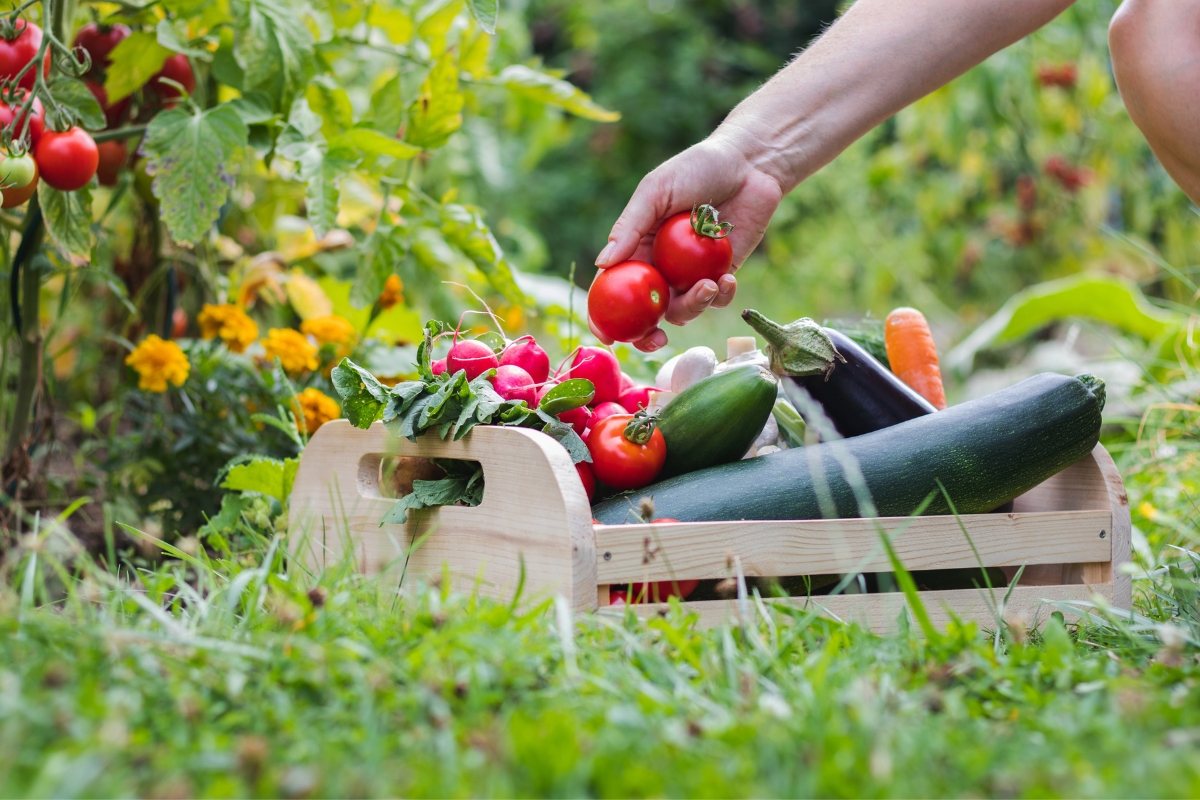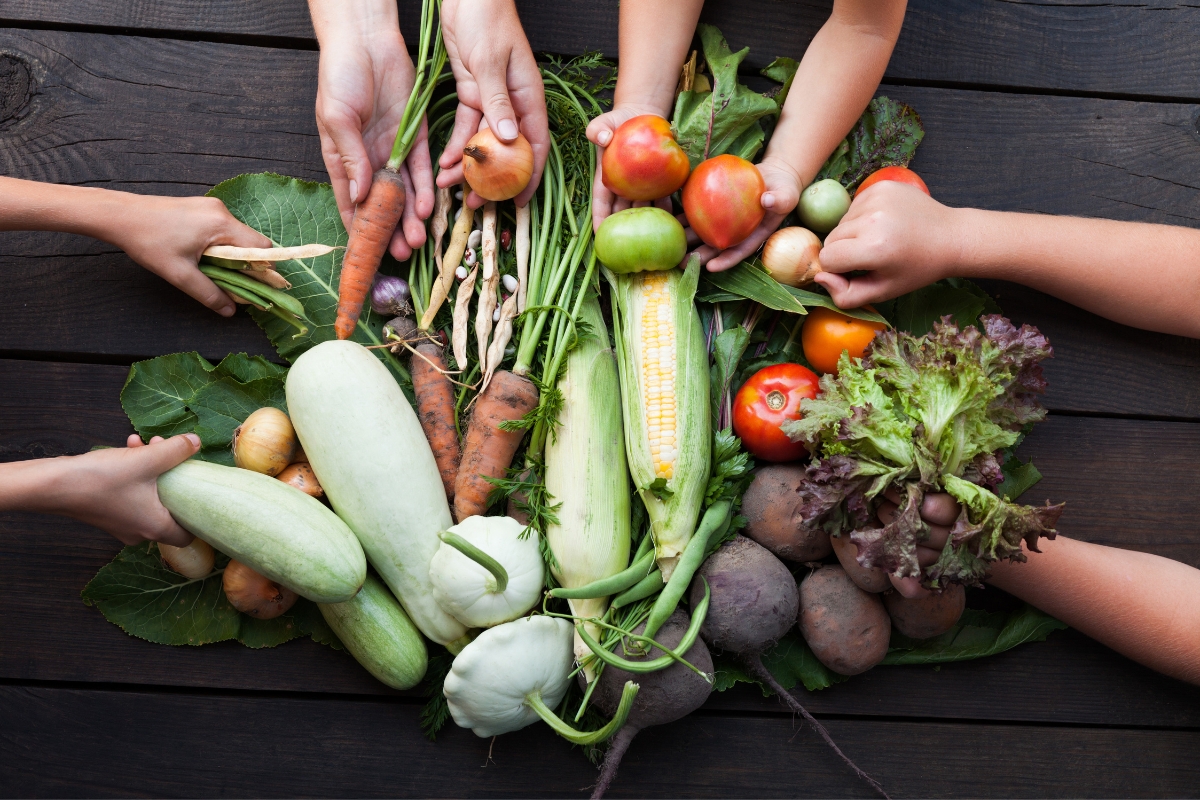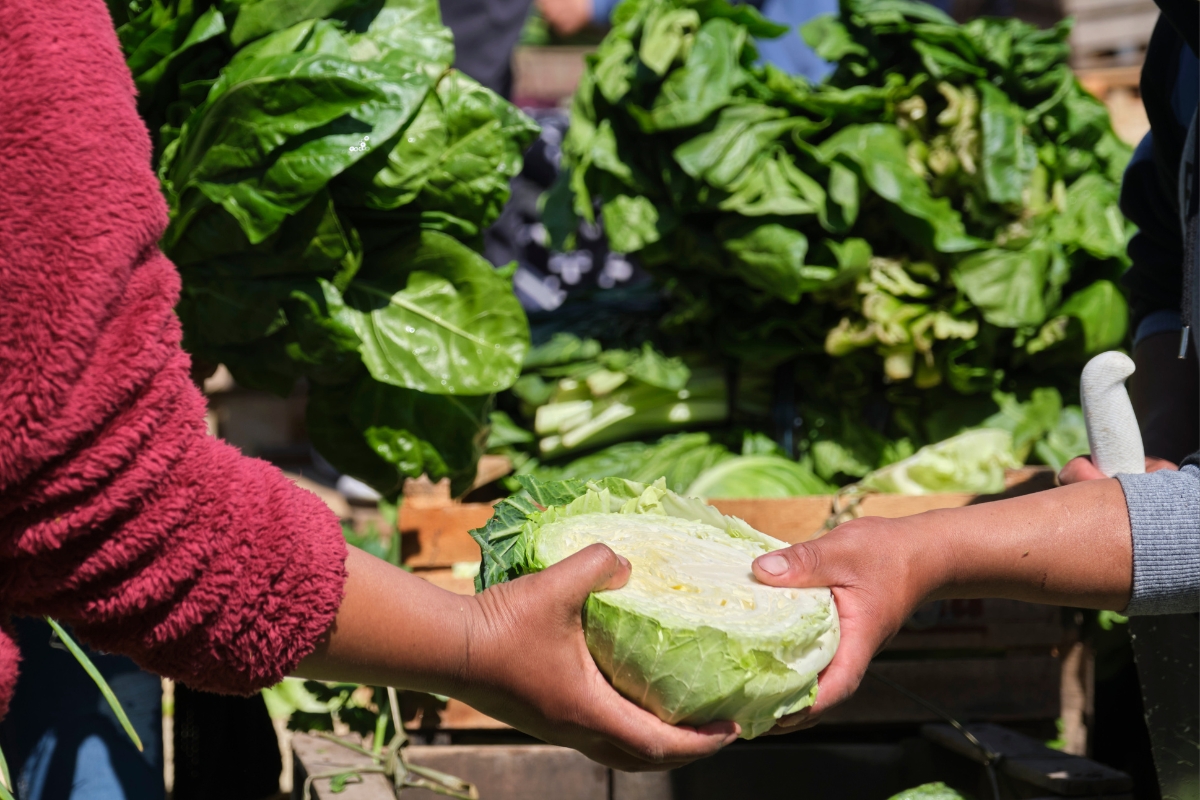Farm-to-table catering is transforming the way we think about food by redefining freshness and flavor with ingredients sourced directly from local farms. This movement emphasizes sustainability, quality, and supporting local farmers, bringing the freshest, seasonal ingredients straight to your plate.
In this guide, we’ll explore how farm-to-table catering is revolutionizing the culinary experience, offering dishes that not only taste better but are also environmentally responsible.
Why Choose Farm to Table Catering for Your Next Event
The Origins of Farm to Table Catering

Farm to table catering traces its origins to the early 20th century, when the industrialization of food production caused a growing disconnect between consumers and the origins of their food.
As large-scale farming and processed foods became more prevalent, concerns about the environmental impact, declining food quality, and health risks of mass-produced products started to emerge. This sparked a movement that sought to reconnect people with locally sourced, seasonal ingredients, emphasizing the importance of knowing where food comes from and how it’s grown.
The farm to table movement gained significant momentum in the 1970s, driven by the rise of organic farming, sustainability initiatives, and a push toward healthier, environmentally conscious eating habits.
Chefs and food enthusiasts led this charge, actively seeking partnerships with local farmers to procure fresh, high-quality ingredients for their kitchens. This shift not only enhanced the flavor and nutritional value of the food being served but also supported regional farmers and promoted sustainable farming practices.
Farm to table catering today represents a commitment to locally grown, seasonal fare that highlights the connection between the land and the table. Caterers benefit from providing fresher, healthier meals, while simultaneously supporting local agricultural communities and fostering greater environmental stewardship.
Building Relationships with Local Farmers

One of the key pillars of farm to table catering is establishing strong relationships with local farmers. These connections offer caterers direct access to high-quality, seasonal ingredients while also fostering trust and transparency in the sourcing process.
Working closely with local farmers allows caterers to guarantee the freshest produce, meats, and dairy for their menus, elevating both the flavor and nutritional value of their dishes.
Building these relationships takes time and effort, often involving caterers visiting farms in person to meet the farmers, learn about their methods, and assess the quality of their products firsthand. This hands-on approach helps caterers understand the nuances of each farm’s production practices, allowing them to make informed decisions about which ingredients to incorporate into their offerings.
Beyond just sourcing ingredients, these relationships can also play a role in promoting sustainability. By working with farmers, caterers can encourage organic practices, reduce reliance on harmful pesticides, and support land management techniques that prioritize soil health and environmental conservation.
In turn, this collaboration benefits both the farmers and caterers—ensuring a reliable supply of high-quality products while championing eco-friendly practices that benefit the broader community and environment.
Seasonal Menus: Embracing Nature’s Rhythm

A key element of farm to table catering is embracing nature’s rhythm by crafting seasonal menus. By focusing on ingredients that are locally available and in-season, caterers not only ensure the freshest, most flavorful produce but also reduce the environmental impact associated with transporting out-of-season items over long distances.
This approach aligns with the principles of sustainability and highlights the importance of eating in harmony with nature.
Designing menus based on seasonal availability allows chefs to celebrate the distinctive flavors and ingredients of each time of year. Whether it’s vibrant, crisp vegetables in the spring or hearty root vegetables in the fall, seasonal menus capture the essence of the region and offer diners an authentic taste of local agriculture. This not only supports local farmers but also encourages a deeper appreciation for the natural cycle of food production.
Creating seasonal menus also requires flexibility and creativity from chefs. They must adapt their dishes to the ingredients at hand, often leading to innovative combinations and the discovery of new flavors.
This constant evolution in menu offerings keeps farm to table dining fresh, exciting, and reflective of the chef’s ingenuity, making each meal a unique experience that showcases the beauty of seasonal ingredients.
Sustainability Practices in Farm to Table Catering

At the heart of farm-to-table catering lies a strong focus on sustainability, which guides a dedication to eco-friendly practices. Through the use of locally sourced ingredients, caterers actively diminish the environmental impact of transportation, thereby reducing emissions linked to extensive shipping distances. This also supports small-scale, local farmers who often prioritize environmentally friendly, organic farming methods, promoting a more sustainable food system.
Many farm to table caterers extend their sustainability efforts beyond ingredient sourcing. They focus on waste reduction by composting food scraps and donating surplus food to local shelters or charities, minimizing food waste.
Additionally, the use of sustainable, biodegradable, or reusable packaging materials is emphasized, reducing the reliance on single-use plastics and further lessening the environmental impact.
Farm to table catering also promotes agricultural biodiversity. By encouraging farmers to grow a diverse range of crops, this approach helps reduce the need for monoculture farming, which can deplete soil nutrients and increase pesticide use.
Crop diversity supports healthier ecosystems, enriches soil, and improves long-term sustainability in local farming communities. Together, these practices create a catering model that prioritizes both environmental responsibility and exceptional culinary quality.
The Impact on Flavor and Quality

The close connection between farmers and caterers in farm to table catering guarantees unmatched flavor and quality in every dish. Ingredients are sourced locally and often harvested at their peak ripeness, ensuring they retain their full flavor, texture, and nutritional value. This level of freshness is a significant factor in the superior taste of farm to table dishes compared to mass-produced or long-transported foods.
When fruits and vegetables are allowed to fully ripen in the field, they develop richer, more complex flavors. In contrast, produce that is picked prematurely for long-distance shipping often lacks the depth of flavor.
Similarly, meats and dairy products from local farms are typically fresher and of higher quality, benefiting from ethical and sustainable farming practices that contribute to their superior tenderness and taste.
By focusing on quality over quantity, farm to table catering offers a dining experience that elevates the flavors of each ingredient. Diners can truly savor the difference, enjoying meals that highlight the natural, vibrant tastes of fresh, locally sourced ingredients while also supporting a more sustainable and community-driven food system.
Farm to Table Catering: A Culinary Journey

Farm to table catering is more than just a dining experience; it’s a culinary journey that connects diners to the land, local farmers, and the communities around them. Each dish served reflects a story of sustainable farming, local flavors, and shared values between caterers, farmers, and guests. It’s a celebration of fresh, ethically sourced ingredients and the traditions behind them.
At events catered with farm to table principles, guests become part of this journey. They not only enjoy meals crafted from locally sourced, peak-season ingredients but also have the opportunity to engage with the chefs and farmers. Learning about the origins of the food enhances the dining experience, allowing guests to develop a deeper connection to what’s on their plate and appreciate the effort behind each ingredient.
This journey also promotes community well-being by supporting local farms and businesses. It sparks meaningful conversations about sustainability, food systems, and responsible consumption.
Community Engagement and Support

Farm to table catering has a profound and positive impact on local communities by creating strong connections between caterers and small-scale farmers. By prioritizing locally sourced ingredients, caterers provide consistent business to farmers who often face challenges competing with large industrial farms. This reliable market helps sustain the livelihoods of these farmers and contributes to the economic health of rural areas.
Beyond supporting farmers, farm to table catering also generates local jobs. Caterers hire staff for food preparation, service, and event coordination, directly contributing to employment opportunities within the community. This approach nurtures a cycle of local growth, where the money spent on food stays within the community and fosters overall economic resilience.
Farm to table events often extend their community engagement by collaborating with local organizations or charities. These events might host fundraisers, support local causes, or donate leftover food to those in need. By doing so, farm to table catering becomes not only a culinary experience but a platform for social impact, strengthening bonds within the community and fostering a culture of giving and sustainability.
Farm to Table Catering: A Mindful Dining Experience

Choosing farm to table catering offers more than just a meal—it provides a mindful dining experience that connects you with the food you eat and the people who produce it. This approach encourages a deeper awareness of how our food choices affect our health, the environment, and the well-being of local communities.
When you choose farm to table catering, you know that your meal is crafted with fresh, locally sourced ingredients, often harvested at peak ripeness. These ingredients are typically free from harmful chemicals, ensuring that your food is not only delicious but also healthier. By supporting this style of catering, you are contributing to sustainable farming practices that prioritize soil health, biodiversity, and animal welfare.
In addition to enjoying fresh, flavorful dishes, opting for farm to table catering makes a statement about your values. It supports small-scale farmers, reduces the carbon footprint associated with long-distance food transportation, and strengthens local economies. Ultimately, farm to table catering goes beyond taste—it fosters a meaningful connection between people, food, and the planet, making each meal a celebration of sustainability and community.
Conclusion: Redefining Freshness and Flavor at Your Table
Farm to table catering has revolutionized the way we approach dining experiences. It has brought us closer to nature, reconnected us with local farmers, and redefined what it means to eat fresh.
By prioritizing locally sourced ingredients, sustainability practices, and community engagement, farm to table caterers have created a culinary movement that celebrates flavor, quality, and mindful consumption. Each dish tells a story—a story of freshness and flavor that is deeply rooted in its local origins.
Experience the vibrant flavors of farm-to-table catering with A Delightful Bitefull Catering. Let us redefine freshness for your next event, delivering wholesome and delicious dishes that celebrate the best local ingredients. Contact us today at (770) 565-4146 to start planning your unforgettable farm-to-table feast!





